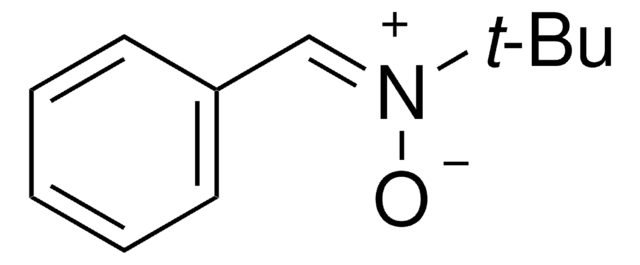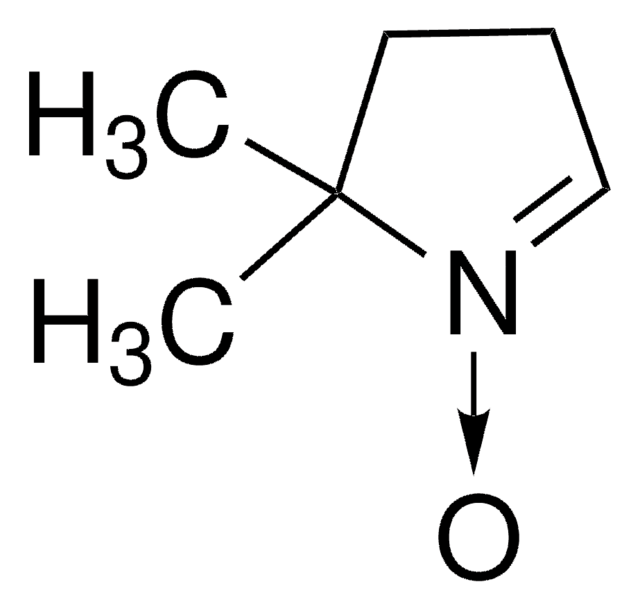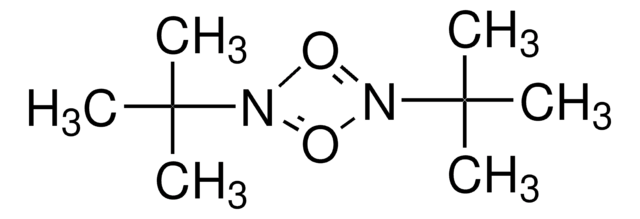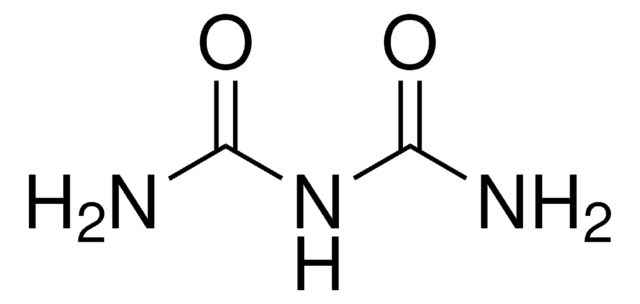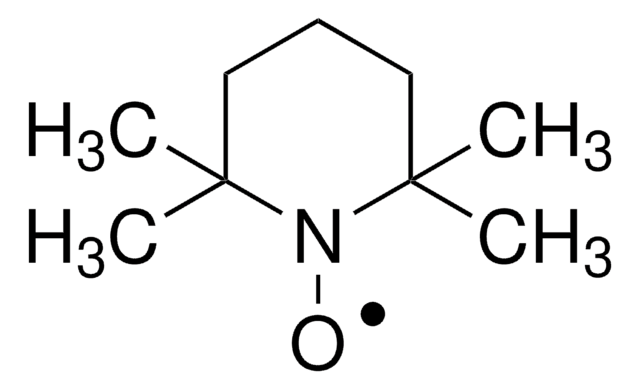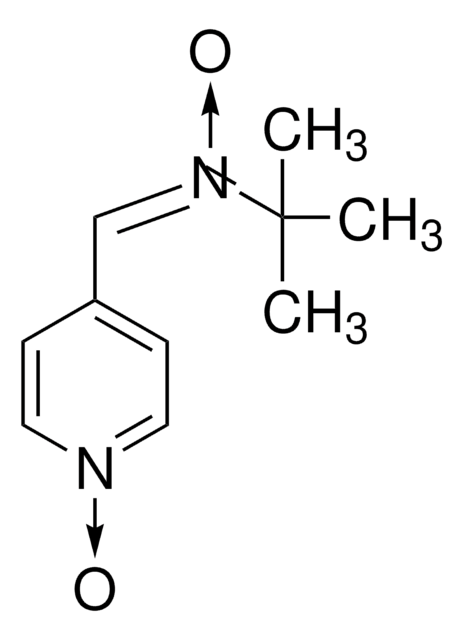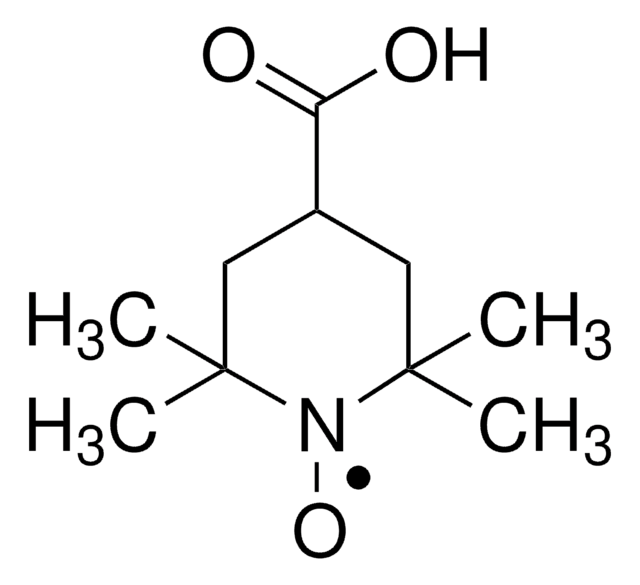80126
N-tert-Butyl-α-phenylnitrone
for ESR-spectroscopy
Sinónimos:
N-Benzylidene-tert-butylamine N-oxide, PBN, Phenyl N-t-butylnitrone
About This Item
Productos recomendados
grade
for ESR-spectroscopy
Quality Level
assay
≥99.5% (HPLC)
form
powder
mp
72-74 °C
73-74 °C (lit.)
solubility
chloroform: 50 mg/mL, clear, colorless
storage temp.
−20°C
SMILES string
CC(C)(C)[N+](\[O-])=C\c1ccccc1
InChI
1S/C11H15NO/c1-11(2,3)12(13)9-10-7-5-4-6-8-10/h4-9H,1-3H3/b12-9-
InChI key
IYSYLWYGCWTJSG-XFXZXTDPSA-N
¿Está buscando productos similares? Visita Guía de comparación de productos
Application
Biochem/physiol Actions
Storage Class
11 - Combustible Solids
wgk_germany
WGK 3
flash_point_f
Not applicable
flash_point_c
Not applicable
Elija entre una de las versiones más recientes:
¿Ya tiene este producto?
Encuentre la documentación para los productos que ha comprado recientemente en la Biblioteca de documentos.
Los clientes también vieron
Nuestro equipo de científicos tiene experiencia en todas las áreas de investigación: Ciencias de la vida, Ciencia de los materiales, Síntesis química, Cromatografía, Analítica y muchas otras.
Póngase en contacto con el Servicio técnico